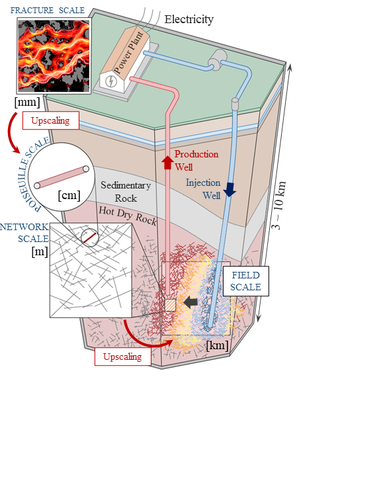Description

GEONEAT is a research project funded by the European Union (265k€) with a three-year "Global Postdoctoral Fellowship" (score 100%) awarded to Dr Alessandro Lenci under the Marie Skłodowska-Curie Actions (MSCA), first pillar "Excellent Science" of the framework program Horizon Europe.
The research activity involves an interdisciplinary approach that ranges from applied mathematics to hydrology to propose a novel methodology to answer two scientific objectives (SO);
To achieve these two SO, two major technical challenges (TC) must be addressed;
GEONEAT relies on the expertise of a top-notch consortium composed of the University of Bologna (beneficiary, supervisor Prof. Vittorio Di Federico and co-supervisor Prof. Valentina Ciriello, experts in subsurface stochastic
modeling), Stanford University (outgoing phase, supervisor Prof. Daniel M. Tartakovsky and co-supervisor Prof. Roland Horne, experts in uncertainty quantification, inverse modeling, and geothermal energy), and the University Rennes 1 (secondment, supervisor Prof. Yves Méheust and co-supervisor Dr. Maria Klepikova, experts in subsurface heat transfers and analog experiments of flow and transport).
GEONEAT will contribute to promoting the growth of a low-carbon, sustainable, renewable energy market, consistent with the EU’s green goals and priorities.